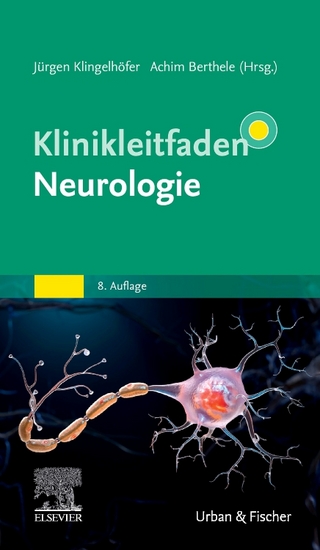
Uncommon Causes of Stroke
Cambridge University Press (Verlag)
978-1-107-14744-7 (ISBN)
- Lieferbar (Termin unbekannt)
- Versandkostenfrei innerhalb Deutschlands
- Auch auf Rechnung
- Verfügbarkeit in der Filiale vor Ort prüfen
- Artikel merken
Now in its third edition, this essential and detailed guide provides wide-ranging support for those diagnosing, treating and assessing complex types of cerebrovascular diseases, in a high pressure, time-constrained environment. Authored by leading clinicians in the field of neurology, and supported by advanced in brain-mapping technologies, this cutting-edge manual provides physicians, neurologists and emergency practitioners at all levels with a vital commentary on those relatively uncommon types of cerebrovascular disease that can lead to patients suffering a stroke. This new edition offers chapter-by-chapter imaging findings, evaluation and management advice, alongside insights into new topics such as CARASIL, sickle cell disease, radiation-induced cerebrovascular disease and blue rubber bleb syndrome. Updated and thorough, the guide provides a clear presentation on the nature, diagnosis, and treatment of everyday symptoms, through to more specialised cases. Building upon existing experience, practitioners can confidently assess patient needs, and correctly diagnose symptoms first time.
Louis Caplan is Professor of Neurology at Harvard Medical School and Senior Physician on the Beth Israel Deaconess Medical Center Stroke Service. Previous Chair of the Stroke Council of the American Heart Association and Chair of the Boston and Chicago Neurological Societies, he is also an honorary member of the German, Australian, and Hong Kong Neurological Societies and the Korean Stroke Society. José Biller is Professor of Neurology and Neurological Surgery and Chairperson of the Department of Neurology at Loyola University Chicago. Director of the American Board of Psychiatry and Neurology (1994–2001), and President in 2001, Dr Biller is a Fellow of the American Academy of Neurology, American Neurological Association, American College of Physicians, and the Stroke Council of the American Heart Association.
Part I. Infectious Conditions: 1. Neurosyphilis and stroke; 2. Vasculitis and stroke due to tuberculosis; 3. Stroke due to fungal infections; 4. Stroke and vasculitis in patients with cysticercosis; 5. Stroke in patients with bacterial meningitis with a focus on pneumococcus and Lyme disease; 6. Cerebrovascular and neurologic complications of Kawasaki disease; 7. Cerebrovascular problems in Chagas' disease; 8. Stroke in persons infected with HIV; 9. Infective endocarditis; 10. Varicella zoster and other virus-related cerebral vasculopathy; Part II. Inflammatory Conditions: 11. Primary angiitis of the CNS; 12. Temporal arteritis; 13. Takayasu disease; 14. Behcet's disease; 15. Stroke and neurosarcoidosis; Part III. Hereditary and Genetic Conditions and Malformations: 16. Pulmonary arteriovenous malformations; 17. Hereditary hemorrhagic telangiectasia (OWR disease); 18. CADASIL; 19. CARASIL; 20. Sickle-cell disease and other hemoglobinopathies; 21. Cerebrovascular complications of Fabry's disease; 22. Marfan syndrome; 23. Pseudoxanthoma elasticum; 24. Ehlers–Danlos syndrome; 25. Progeria; 26. MELAS and other mitochondrial disorders; 27. Sturge–Weber syndrome; 28. Von Hippel–Lindau disease; 29. Familial aneurysms; 30. Cerebral cavernous malformations and developmental venous anomalies; 31. Cerebrovascular manifestations of the neurofibromatosis; 32. Menkes' disease; 33. Wyburn-Mason syndrome; 34. Divry–van Bogaert disease; 35. Blue rubber bleb syndrome; Part IV. Vascular Conditions of the Eyes, Ear and Brain: 36. Eales retinopathy; 37. Acute posterior multifocal placoid pigment epitheliopathy; 38. Microangiopathy of the retina, inner ear and brain: Susac's syndrome; 39. Hereditary endotheliopathy with retinopathy, nephropathy and stroke; 40. Cogan's syndrome; Part V. Disorders Involving Abnormal Coagulation: 41. Antiphospholipid syndrome; 42. Disseminated intravascular disease; 43. Bleeding disorders; 44. Thrombophilia; 45. Thrombotic thrombocytopenic purpura; 46. Cerebrovascular complications of Henoch–Schonlein purpura; Part VI. Systemic Disorders that Also Involve the Cerebrovascular System: 47. Microscopic polyangiitis and polyarteritis nodosa; 48. Churg-Strauss syndrome; 49. Systemic lupus erythematosus and cerebrovascular disease; 50. Rheumatoid arthritis and cerebrovascular disease; 51. Hyperviscosity and stroke; 52. Calcium, hypercalcemia, magnesium and brain ischemia; 53. Stroke and substance abuse; 54. Cancer and paraneoplastic stroke; 55. Degos' disease (malignant atrophic papulosis); 56. Stroke in patients who have inflammatory bowel diseases; 57. Sweet syndrome; 58. Nephrotic syndrome and other renal diseases and stroke; 59. Epidermal nevus syndrome; 60. Sneddon's syndrome; 61. Bone disorders and cerebrovascular diseases; 62. Scleroderma; 63. Hypereosonophilic syndrome; 64. Radiation-induced vascular disease; 65. Lymphomatoid granulomatosis; Part VII. Non-Inflammatory Disorders of the Arterial Wall: 66. Cervico-cephalic arterial dissections; 67. Cerebral amyloid angiopathies; 68. Moyamoya disease and syndrome; 69. Dilatative arteriopathy (Dolichoectasia); 70. Paradoxical embolism and stroke; 71. Fibromuscular dysplasia; 72. Aortic dissection; Part VIII. Venous Occlusive Conditions: 73. Cerebral venous sinus occlusions; Part IX. Vasospastic Conditions and other Miscellaneous Vasculopathies: 74. Reversible cerebral vasoconstriction syndromes; 75. Eclampsia and stroke during pregnancy and the puerperium; 76. Migraine and migraine-like conditions; 77. Intravascular lymphoma.
| Erscheinungsdatum | 28.08.2018 |
|---|---|
| Verlagsort | Cambridge |
| Sprache | englisch |
| Maße | 224 x 283 mm |
| Gewicht | 2270 g |
| Themenwelt | Medizin / Pharmazie ► Medizinische Fachgebiete ► Neurologie |
| Medizin / Pharmazie ► Medizinische Fachgebiete ► Notfallmedizin | |
| ISBN-10 | 1-107-14744-1 / 1107147441 |
| ISBN-13 | 978-1-107-14744-7 / 9781107147447 |
| Zustand | Neuware |
| Haben Sie eine Frage zum Produkt? |
aus dem Bereich


